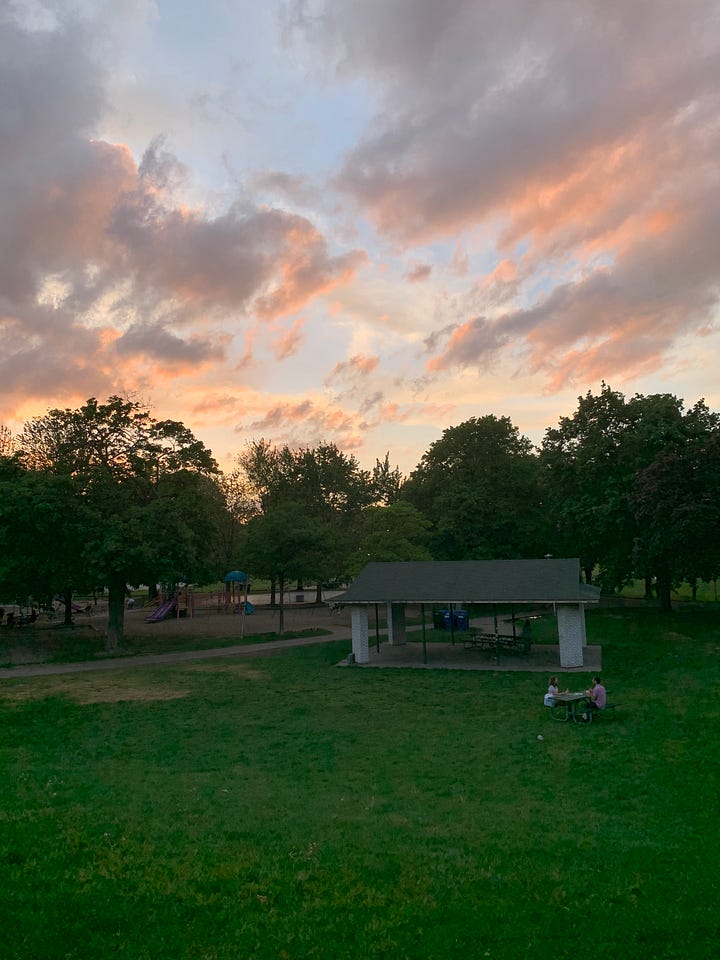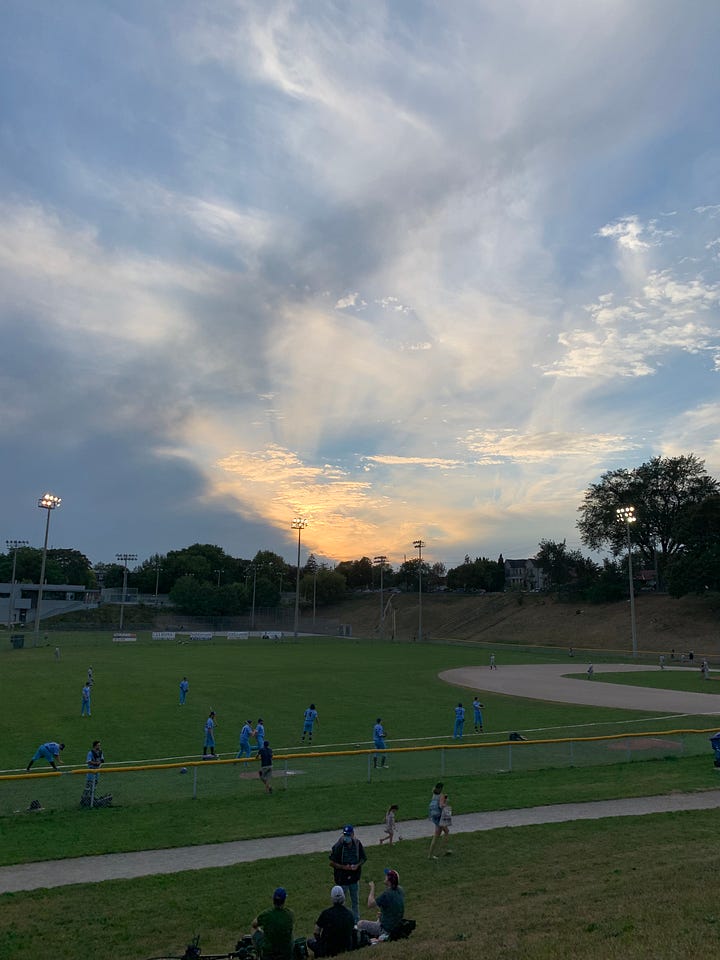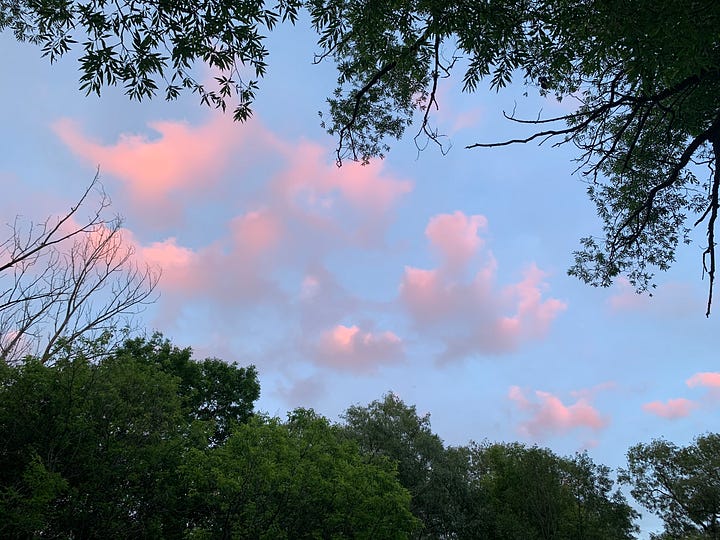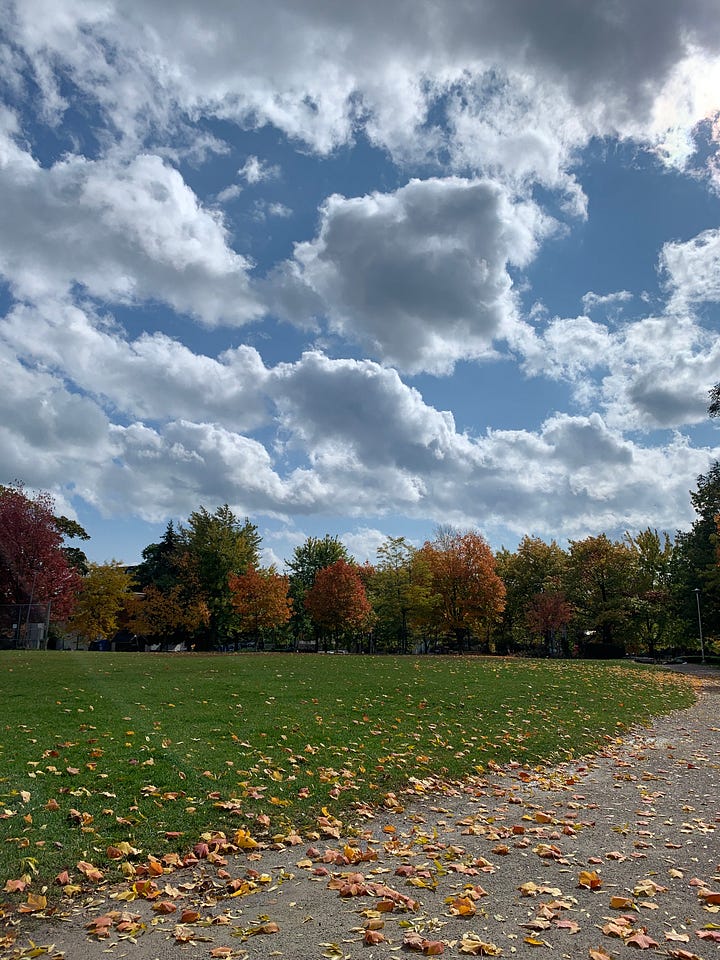To what extent does a city — or one’s feelings about a city — lend itself to the form of notes? Susan Sontag writes in her essay Notes on “Camp,” from which this piece steals its style like a thief in the night, that “The form of jottings, rather than an essay (with its claim to a linear, consecutive argument), seemed more appropriate for getting down something of this particular fugitive sensibility.” I’m here to convince you that a city can be something like a sensibility. There’s an idea of Toronto, defined by a municipal government and geographic boundaries —but the Toronto we each live in is defined by our own unique experiences with it. Thus, I wish to offer you a diversity of experiences, snapshots, notes. It may be too much to claim that a city is a sensibility, but I prefer thinking of Toronto as such rather than a collection of people and places.
“What do you like about Toronto?” my friend asked me.
“I like that people I know live here,” I said. It’s the most truthful answer I can come up with.
I hate Toronto. It’s 2017 or 2018 or 2019 and I live hundreds of miles away from my family and my determination to build my own life for myself isn’t going well. I have crippling anxiety and I eat 80 to 90 per cent of my meals at Tim Hortons or McDonalds. I don’t talk to my roommate and I’m terrified of my landlord. I remember walking home from a cappella rehearsal across King’s College Circle at night, and, tired of simply being alive, sitting down on the steps outside of the MedSci building and listening to “The Kids From Yesterday,” by My Chemical Romance. Somehow, those winters were colder — much colder — than they have been since.
Toronto taught me what loneliness was. I think it’s a frequent story for anyone who goes somewhere and is from somewhere else. What is loneliness if you’ve spent 18 years of your life surrounded by your family? I quickly learned what loneliness meant in Toronto. Long, dreary walks along Queen St at night, longing to just be inside one of the stores or restaurants I walked by. Later, it was just the feeling of grey everywhere, including in my head. When I thought about the future, I could only see a grey wall. I didn’t feel like there would be anything else in my future except that. No jobs, no friends. Just the wall. Thankfully, these symptoms have waned in the recent years, but they defined my experiences here more than I wish they had. I wish I hadn’t done about 90 percent of the things I’ve done here. But I’m unbelievably grateful for the other 10 percent.
Inquiring minds want to know: Am I going to move back to the States? I always say yes, in a few years probably. “Well, you were always going to move back,” my childhood friend said this past December. Maybe she’s right, but I never realized that when I moved here. I never thought about something else being on the other side. In my mind, it really was always just this. I don’t like to admit that I’m leaving because it sounds too much like defeat.
“I used to have no idea where you were,” my brother told me about my first few years in Toronto. I realize he’s right, that I basically fled where I grew up as soon as I graduated high school. I wonder why. My mom always encouraged me to go wherever I wanted, no matter how far. She was the one who dropped me off at university, just us two. A few days before we were supposed to leave for Toronto, a depressive episode came on to her. That’s really how it was in those days: one day fine, the next day depressed. I wanted to buy a laptop case at Target, a good purchase for a new university student, I figured. Sometime between suggesting the idea and actually going back to Target, the depressive episode started. I felt crushed when her spirit — usually indomitable, energetic — was suddenly overcome with depression, and I was embarrassed about my need for a laptop case. Suddenly, me going to university wasn’t something we were doing together, but rather something I was dragging her to in her depressed state. As we said goodbye on Chestnut Street, she teared up in an uncharacteristic way for a woman who truly wanted me to see the world and make my own life, the depressed version of herself taking the reins.
I tried to write a narrative about Toronto and I could not. I tried to think about my time living in this city and come up with conclusions, and I could not.
In trying to explain why it’s so hard for me to feel completely at home in Toronto, I once wrote in a journal entry that “It’s the feeling of having been from somewhere as opposed to having gone to it.” Does this mean people can never feel at home in a place they didn’t come from?
On one trip back to the States, I decided that, unemployed and with absolutely no job prospects, I didn’t want to come back to Toronto. I told my brother this as he was dropping me off at the train station. “You can’t hide from your problems in Pennsylvania,” he said. Unfortunately, he was right, and I got on the train.
I recall, once, a few winters ago now, walking to get coffee in the winter with my roommates. “Is this all I really wanted?” I remember how I felt in that moment, like I had finally made it — through the grey wall, out of the cold winters to a winter that felt something like home. It was really that simple.
Sometimes, on a sunny, early fall day, a walk in Toronto is the best thing in the world.
My coworker at Extra Butter tells me to save my fall tips or else “it’ll be January and you’ll be hungry.” I think about this as I pull out cash to buy groceries, tap my card to buy a drink.
If you caught me at the right moment on the right day (or maybe we should say the wrong moment on the wrong day), I might’ve told you that I “hated” Toronto. At the university newspaper, we reported on loneliness and suicide. We talked about the “student mental health crisis,” and we tried to find each other.
I’m worried I have the tendency to think of living here as something I can beat, like a video game. I’ve put in the work, and six years later, I like it here most days. When you first get here as a university student — especially one who never gave more than a few seconds of thought on the idea of moving 2,000 miles and one international border away from her family — you’re playing the game on hard mode. As you make friends, it becomes easier. Sometimes you lose friends, and everything gets a bit more complicated.
Toronto: the video game
Successfully navigate a landlord disagreement: +100 XP
Get scammed by a landlord: restart level
Take a walk in January and think “this isn’t that bad!”: speed bonus
Sit in a friend’s apartment and feel happy to know them: restore health
Drunk walk home: easter egg
Fall in love: automatic level up
I hate my job and I can’t quit because my rent is too high.
Getting off the train in Hamilton, NJ is the only time my dad and I reliably talk for a 20 minute stretch of time and he asks me mysterious questions about my life in Toronto. Do I own a pillow? Do I celebrate Christmas? Do I have health insurance?
When people visit Toronto, I’m specific with figuring out what they like. “What neighbourhood do you want to live in?” “Where did you go?” I want to hear them appreciate the places I love.
Metropolitan world travellers will scoff at Toronto’s quaint neighbourhoods; Americans will compare it to New York. Other Canadians either see it as the only place to go or an overpriced city on the decline. Who loves Toronto? What about the few masochists, who’ve stuck it out through cold and dark and cost of living increases and learned to love it in spite of everything?
I wonder if my Toronto sounds like yours at all. I wonder if you have felt what I have. I wonder if you have felt loneliness. I wonder if you have felt wonderfully connected to the world here. I wonder if you want to find me as much as I want to know you.
Sky photos I’ve taken on walks:






So good. #17 was funny and relatable. Thank you for sharing <3